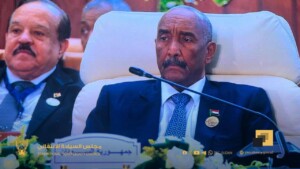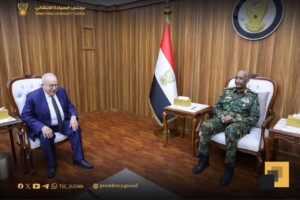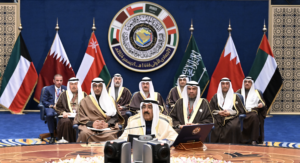Sudanese govt rejects advice of Juba workshop on secularism
Sudanese government delegates have rejected the recommendations made in the final report after a four-day long workshop in Juba organised to facilitate negotiations between the Sudanese government and the Sudan People’s Liberation Movement-North under the leadership of Abdelaziz El Hilu (SPLM-N El Hilu*) on the controversial issue of secularism and self-determination, the two main issues the SPLM-N El Hilu adheres to.
 Delegates at the Juba workshop (Social media)
Delegates at the Juba workshop (Social media)
Sudanese government delegates have rejected the recommendations made in the final report after a four-day long workshop in Juba organised to facilitate negotiations between the Sudanese government and the Sudan People’s Liberation Movement-North under the leadership of Abdelaziz El Hilu (SPLM-N El Hilu*) on the controversial issue of secularism and self-determination, the two main issues the SPLM-N El Hilu adheres to.
The workshop was held in the Palm Africa Hotel in the capital of South Sudan between October 29 and November 1. The negotiation teams of the Sudanese government and the SPLM-N El Hilu were assisted by South Sudanese mediators and consultants from the Public International Law & Policy Group (PILPG), the African Centre for the Constructive Resolution of Disputes (ACCORD), and the Project & Development Services (PDS).
Kuku Jagdoul, the official spokesperson for the SPLM-N El Hilu negotiation team, said in a press statement on Monday that the two parties agreed on the version of a final report, prepared by the mediators, but that the Sudanese government delegation later voiced objections.
In a statement, SPLM-N El Hilu explains that after deep dialogues and discussions, accompanied by the presentation of models from international and local experts on the application of the principle of secularism in Muslim-majority countries, the parties agreed that Turkish model seems the most applicable in Sudan.
The statement clarified that the two parties reached a final report, which was read to workshop participants from both parties without initial objections.
“When the text was read to the participants at the closing session, both parties did not have any objection. Yet, everyone was surprised when the representative of the Sudanese government subsequently said they have reservations about some Items” Jagdoul said.
The spokesperson stated that after the transitional government delegation accepted the report, member of the Sovereign Council and head of the delegation Lt Gen Shamseldin Kabbashi and government spokesperson Mohamed El Taayshi rejected the workshop outcomes in the closing session despite being absent for most of the workshop sessions.
The holding rebel group said that they hold Lt Gen Shamseldin Kabbashi responsible for the failure of the workshop.
SPLM-N El Hilu also stressed that the government’s failure to accept the September 3 Declaration of Principles, signed by Prime Minister Abdallah Hamdok and SPLM-N leader Abdelaziz El Hilu in Addis Ababa, implies not accepting the separation of religion and the state and thus rejecting the peace process.
Nevertheless, the rebel group restated its eagerness to continue dialogue and negotiation to reach a sustainable peace agreement addressing the roots of the Sudanese problems.
A member of the Sovereign Council commented that the Sudanese government is willing to set a time for the commencement of direct negotiations between the government and the Movement.
The September 3 agreement, signed in Addis Ababa, states that negotiations will resume only after an agreement is reached concerning the relationship between religion and state affairs.
*The SPLM-N El Hilu, operating in the Nuba Mountains in South Kordofan and parts of Blue Nile state, entered last year’s peace negotiations in Juba separately. Its long-standing position is to establish a viable secular Sudan that prevents imposing laws on a religious basis and to achieve the right to self-determination for the southern region.
Talks between Khartoum and the SPLM-N El Hilu have not been smooth, as the rebel faction adhered to its secular position. Until now, the government has been slow in cancelling the Sharia (Islamic law) imposed by the regime of Jaafar Nimeiri in September 1983, saying the matter should instead be discussed at the constitutional conference.
In August, the rebel group withdrew from the talks in Juba in protest of the chairmanship of the government delegation by Lt Gen Mohamed Hamdan ‘Hemeti’, Deputy Chairman of the Sovereign Council, who is also Commander-in-Chief of the Rapid Support Forces (RSF) militia. The rebels accuse the RSF forces of committing “heinous crimes” against civilians in various parts of Sudan.
Radio Dabanga’s editorial independence means that we can continue to provide factual updates about political developments to Sudanese and international actors, educate people about how to avoid outbreaks of infectious diseases, and provide a window to the world for those in all corners of Sudan. Support Radio Dabanga for as little as €2.50, the equivalent of a cup of coffee.












 and then
and then